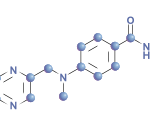Your patient with rheumatoid arthritis (RA) isn’t responding well enough to methotrexate, and you both agree it’s time to consider a biologic or targeted synthetic disease-modifying anti-rheumatic drug (DMARD). But which one should you choose?
In a treat-to-target era, we’re fortunate to have a variety of RA therapies at our disposal. Clinical practice guidelines from the ACR and EULAR help us make evidence-based clinical decisions that optimize patient care, but neither specifies which biologic or targeted synthetic DMARD should be used first because data to support a recommendation are insufficient.1,2
 In June 2023 JAMA Network Open, Claire T. Deakin, PhD, former director of research and biostatistics for Optimising Patient Outcomes in Australian (OPAL) Rheumatology, and a current research fellow at the School of Population Health, University of New South Wales, Sydney, and colleagues shared data on the comparative effectiveness of adalimumab (i.e., a biologic DMARD) vs. tofacitinib (i.e., a targeted synthetic DMARD) in patients with RA new to DMARDs using a novel type of observational study design.3
In June 2023 JAMA Network Open, Claire T. Deakin, PhD, former director of research and biostatistics for Optimising Patient Outcomes in Australian (OPAL) Rheumatology, and a current research fellow at the School of Population Health, University of New South Wales, Sydney, and colleagues shared data on the comparative effectiveness of adalimumab (i.e., a biologic DMARD) vs. tofacitinib (i.e., a targeted synthetic DMARD) in patients with RA new to DMARDs using a novel type of observational study design.3
Head-to-head, randomized controlled trials (RCTs) comparing specific biologic and targeted synthetic DMARDs are limited. Observational studies are an important supplement to RCT data in that they help determine if trial findings can be reproduced in daily clinical practice. However, observational studies come with their own limitations.4 A target trial emulation framework helps address some of those limitations.3,5
“TTE [target trial emulation] is a framework for observational research that aims to strengthen the reliability of observational studies,” explains Dr. Deakin. “The TTE framework asks researchers who are designing an observational study protocol to think through what the key design features would be of an RCT that answers their research question and to then think about how they could emulate those design features using observational data.” Target trial emulation has been used since 2016, but is relatively new to rheumatology.
Deakin et al. used the target trial emulation framework to emulate a comparative effectiveness RCT comparing adalimumab with tofacitinib in biologic or targeted synthetic DMARD naive patients with RA. This helped address the challenges of missing baseline and outcome data, as well as nonrandomized treatment assignment, so evidence could be generated from OPAL Rheumatology, a real-world dataset that includes electronic medical records (EMRs) for more than 200,000 patients with rheumatic conditions in Australia.3
“This research was the product of a long-standing partnership between OPAL Rheumatology and Software 4 Specialists, which has enabled EMRs from large numbers of patients treated in community practices around Australia to be available for research,” says Dr. Deakin.



